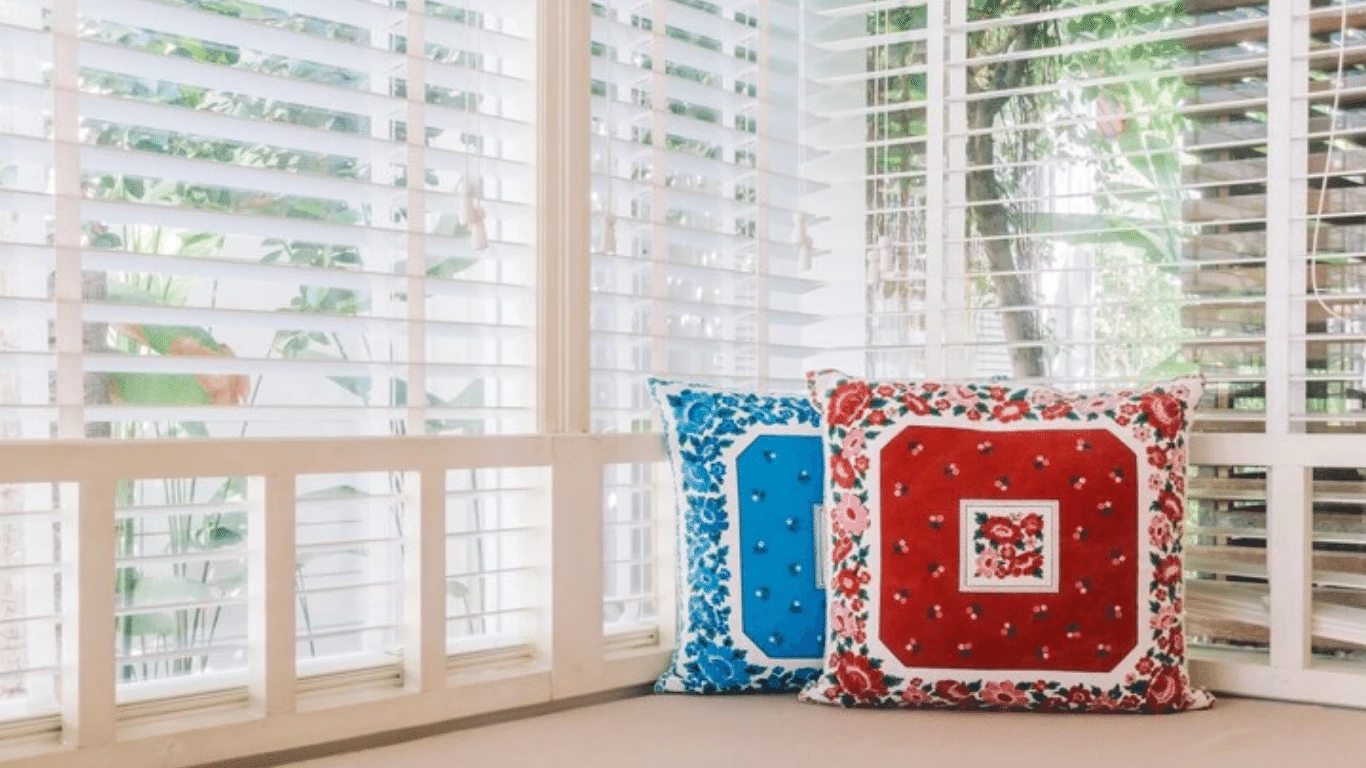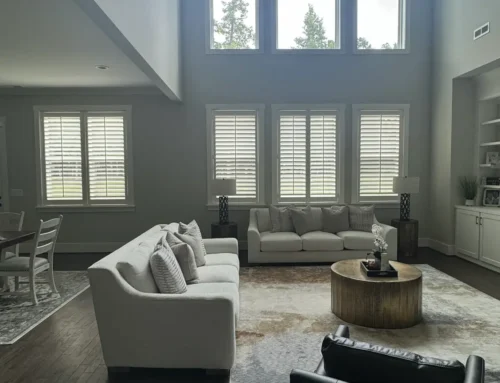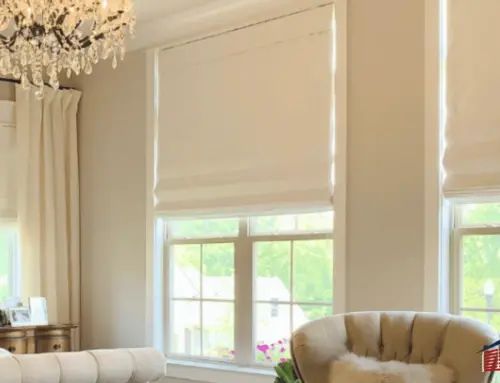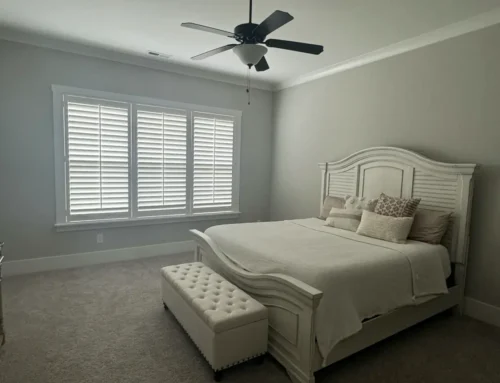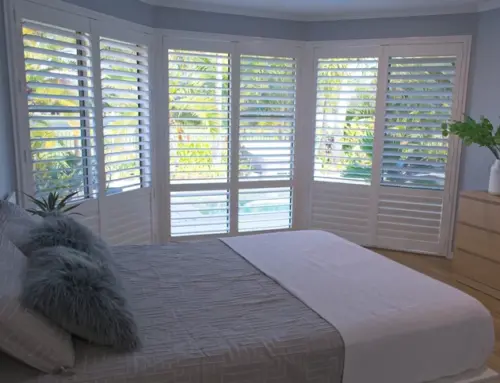Choosing the right window shades for your home is not just about style, it’s about creating a comfortable and functional living space. Whether you’re looking to control the amount of sunlight entering a room, enhance your privacy, or simply add to your home’s aesthetic appeal, there are a variety of window shade solutions to meet your needs.
From roller shades that offer a sleek, modern look to cellular shades known for their energy efficiency, the options are plentiful. Roman shades can add a touch of elegance with their soft fabric folds, while motorized shades provide the utmost convenience at the push of a button.
By considering factors such as the direction your windows face, the climate in your area, and your home’s design, you can find the perfect shades to tailor to your specific requirements. Let’s explore how to match these factors with the best window shade solutions for your home.
What are the benefits of custom window blinds over standard off-the-shelf options?
Custom window blinds offer several advantages over standard off-the-shelf options:
- Perfect Fit: Custom blinds are tailored to the exact measurements of your windows, ensuring a precise fit and a polished, professional look. This eliminates the need for adjustments or modifications often required with standard sizes, resulting in a cleaner, more streamlined appearance.
- Personalized Style: With custom window blinds, you have many design options, including materials, colors, and finishes. This allows you to create a cohesive aesthetic that complements your interior decor and reflects your style, whether you prefer classic elegance, modern sophistication, or something in between.
- Enhanced Functionality: Custom blinds can be customized to meet your specific functional needs, such as light control, privacy, and insulation. You can choose features like motorization, cordless operation, and specialized fabrics to enhance convenience and comfort in your home.
- Durability and Quality: Custom blinds are typically made with higher-quality materials and craftsmanship than standard off-the-shelf options. This ensures greater durability and longevity, reducing the need for frequent replacements and maintenance over time.
- Professional Installation: Custom window blinds are installed by experienced professionals who ensure proper fit and functionality. This eliminates the hassle and potential errors associated with DIY installation, guaranteeing optimal performance and satisfaction.
Overall, custom window blinds offer superior customization, quality, and functionality compared to standard off-the-shelf options, making them an excellent investment for homeowners seeking to enhance the beauty and comfort of their living spaces.
How do window blinds contribute to energy efficiency in a home?
Window blinds can significantly contribute to energy efficiency in a home through several mechanisms:
- Insulation: Blinds act as a barrier between the interior of the home and the outside environment. During hot summer, closing blinds can block out sunlight and heat, reducing the need for air conditioning and helping maintain cooler indoor temperatures. Similarly, closing blinds can prevent heat from escaping through windows during colder seasons, improving insulation and reducing heating costs.
- Light Control: By adjusting the angle of the blinds, homeowners can control the amount of natural light entering the room. This allows for better management of indoor temperatures, as excessive sunlight can cause rooms to become overheated, leading to increased energy consumption for cooling. Reducing reliance on artificial lighting during the day can lower energy usage and utility bills.
- UV Protection: Window blinds can also protect against harmful sun ultraviolet (UV) rays. UV rays can fade furniture, flooring, and other interior furnishings over time. By blocking out or reducing UV exposure with blinds, homeowners can prolong the lifespan of their belongings and reduce the need for replacements or repairs.
- Preventing Drafts: Properly fitted blinds can help seal gaps around windows, preventing drafts and air leakage. This improves the overall energy efficiency of the home by reducing the workload on heating and cooling systems and maintaining more consistent indoor temperatures.
In summary, window blinds contribute to energy efficiency in a home by providing insulation, controlling light and heat, offering UV protection, and preventing drafts. Homeowners can use blinds effectively to create a more comfortable living environment while reducing energy consumption and utility costs.
Can window blinds be motorized for easier operation and convenience?
Yes, window blinds can be motorized for easier operation and added convenience. Motorization allows homeowners to open, close, and adjust blinds with a button or through remote control, smartphone apps, or home automation systems. This feature offers several benefits:
- Convenience: Motorized blinds eliminate manual operation, making it effortless to adjust blinds in hard-to-reach or high-up windows. With motorization, homeowners can control multiple blinds simultaneously, saving time and effort.
- Accessibility: Motorized blinds are especially beneficial for individuals with mobility issues or disabilities, as they provide easy access to light and privacy control without requiring physical exertion.
- Enhanced Safety: Motorized blinds eliminate dangling cords, reducing the risk of entanglement and strangulation hazards, particularly for children and pets. This improves overall safety in the home.
- Improved Energy Efficiency: Motorised blinds can be programmed to adjust automatically based on time, sunshine intensity, and temperature to save electricity. Blinds can be closed during peak sunlight to block heat and minimize air conditioning load.
- Integration with Smart Home Systems: Motorized blinds may be controlled with smart home systems, including lights, thermostats, and security systems. This makes home environment management easier and more flexible.
Overall, motorized blinds offer convenient, safe, and energy-efficient solutions for light and privacy control in the home, making them a popular choice for modern living spaces.
What are some popular materials used in crafting high-quality window blinds?
Several popular materials are used in crafting high-quality window blinds, each offering unique characteristics and aesthetic appeal:
- Wood: Wood blinds are classic and give warmth and charm to any room. They match diverse interior styles with different finishes and stains. Wood blinds may be adjusted for different window sizes and insulate well.
- Faux Wood: Faux wood blinds are composed of PVC or composite wood yet resemble real. They are cheaper than real wood blinds and more durable, resisting moisture, warping, and fading. Faux wood blinds are perfect for humid bathrooms and kitchens.
- Aluminum: Aluminum blinds are lightweight, sturdy, and easy to clean, making them ideal for modern homes and businesses. Metallic, matte and textured finishes are available. Aluminum blinds manage light well and are suited for household and commercial use.
- Fabric: Roman shades, roller shades, and fabric blinds add texture, privacy, and light filtration to windows. They come in varied colors, patterns, and opacities for design. Fabric blinds can be constructed from cotton, linen, silk, or synthetic fabrics for durability and moisture resistance.
- Bamboo and Woven Wood: Bamboo and woven wood blinds give homes texture and earthiness. Their bamboo, reed, and grass construction makes them eco-friendly. Bamboo blinds filter light and insulate, making them perfect for indoor and outdoor use.
These are just a few popular materials for crafting high-quality window blinds. Each material offers its unique blend of aesthetics, functionality, and durability, allowing homeowners to choose the option that best suits their needs and preferences.
How do I determine the right type of window blinds for different rooms in my home?
Determining the right type of window blinds for different rooms in your home involves considering several factors, such as functionality, style, and the specific needs of each room. Here’s a guide to help you choose:
- Light Control: Each room’s natural light should be considered. Bedrooms and media rooms may need light-blocking shades for better sleep or movie night glare. Blackout or cloth blinds with light-filtering liners work well in such settings. In contrast, blinds with adjustable light control can make living rooms and kitchens more comfortable throughout the day.
- Privacy: Assess each room’s privacy needs. Street-facing or nearby rooms may need blinds that provide seclusion without limiting natural light. Venetian and vertical blinds with tilting slats allow you to maintain a view while enjoying privacy when desired.
- Moisture Resistance: Consider dampness in the bathroom, kitchen, and laundry room. Select blinds that won’t warp or deform in humid environments. Choose faux wood, aluminum, or moisture-resistant fabric blinds for such conditions.
- Style and Aesthetics: When choosing blinds, consider room décor and style. Select blinds that match the decor, furniture, and architecture. Match or coordinate blinds across the home for a coherent effect while allowing for room-specific variety.
- Functionality: Consider each room’s practicality. High-traffic rooms may benefit from robust, easy-to-clean blinds. Motorized blinds are convenient for hard-to-reach or wide windows, while cordless ones are safer for families with children or pets.
By considering these factors, you can select the right type of window blinds for each room in your home, ensuring both practical functionality and aesthetic appeal tailored to your specific needs and preferences.
Get Blinds Tailored for You Today!
Elevate your home with bespoke window blinds from The Blind Man! Our expert team crafts tailored shade solutions to perfectly match your style and needs. Experience personalized service and superior-quality blinds that enhance both aesthetics and functionality. Trust The Blind Man for custom shade perfection. Contact us now!

